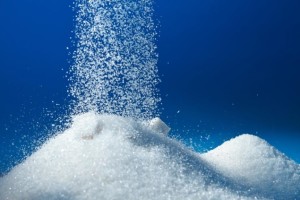
The Dangers behind eating Sugar
Mr. Gossip
When I came across this story; I felt I had to share it with the world. You may think you are eating healthy by avoiding some foods, but many of the foods you are choosing contains tons of added sugar which our bodies Do Not Need!
The key word here is “little.” If Americans consumed only a “little” sugar, such as the natural sugars found in fruit, we’d be just fine. But most consume far more than that, and therein lies the problem.
Americans are Consuming Massive Amounts of Sugar
One recent study revealed that the average U.S. adult consumes 21.4 teaspoons of added sugar each and every day.1 This is added sugar and does not take into account additional sugar in fruit juices, fruits or other whole foods. This staggering amount made up about 16 percent of participants’ total daily caloric intake!
Among children, the numbers are similar, with about 16 percent of daily calories consumed in the form of added sugar, although some surveys suggest teenagers may be eating far more – up to 34 teaspoons a day.
What are the Health Risks of Too Much Sugar?
Sugar is so toxic, according to Robert Lustig, MD and colleagues from the University of California, San Francisco, that they recommend regulating it like tobacco and alcohol in order to protect public health. In a report published in the journal Nature, they contend that sugar is contributing to 35 million deaths worldwide each year due to obesity and diseases like diabetes, heart disease and cancer.3
Excess sugar is linked to changes in metabolism, increased blood pressure, liver damage and interference with hormone signaling. Lustig and colleagues argue that many of the health effects caused by drinking too much alcohol are, in fact, also caused by eating too much sugar.
For instance, too much sugar is associated with dyslipidemia, a lipid profile known to increase heart disease risk. One study found that those who got 25 percent or more of their daily calories from sugar had double the risk of having low HDL (good) cholesterol compared to those who consumed less than 5 percent of their calories as sugar.5 Those who ate the most sugar also had the highest triglyceride levels (low HDL and high triglycerides are two of the primary risk factors for heart disease).
Sugar is also linked to cancer. High blood sugar levels, caused by health conditions like diabetes along with eating too many sugary foods, have been linked to cancers of the pancreas, skin, uterus, urinary tract and breast. Further, women with the highest blood sugar levels were found to have a 26 percent higher risk of developing cancer than those with the lowest,6 whereas women with the highest carbohydrate intake (62 percent of their diet or more) were more than twice as likely to develop breast cancer than those with a lower carb intake (52 percent or less).7
Part of the problem appears to be sugar’s ability to induce insulin resistance, which occurs as a byproduct of excess sugar consumption and subsequent metabolism by the liver. In this case, it’s the fructose (table sugar is made up of fructose and glucose) that appears to place an extra burden on your liver, causing it to convert the fructose into fat, which triggers insulin resistance. The New York Times reports:8
Does the Type of Sugar Matter?
White versus brown? Raw versus refined? Organic or not? When it comes to sugar, there are a lot of options but choosing raw or organic sugar will not negate its health risks (with the exception of perhaps lowering pesticide and chemical exposure for organic brands). There are some slight differences – for instance unrefined raw sugar is made from the juice of the sugar cane plant, and as it is not fully refined, it will have trace minerals and nutrients, although not in any significant amounts – but they are negligible in terms of your health.
Where is All of This Sugar Hiding?
You may be wondering where all this extra sugar is coming from, assuming you don’t dip into the sugar bowl to season each meal. Soda and other sugary beverages are, of course, obvious culprits, but so are many processed foods, including some you might not think of as “sweet.”
Sugar-sweetened breakfast cereals, ice cream, baked goods, cookies, candy, fruit juice … you know these contain sugar. But did you know that many yogurt brands contain more sugar than a Twinkie? Other heavily sweetened foods that can add a significant amount of added sugar to your diet include:
- Canned fruit packed in syrup
- Fat-free salad dressing (and virtually any fat-free products, as sugar often replaces the fat)
- Granola bars
- Tomato sauce
- Muffins
- Peanut butter
- Bread
- Ketchup
Also be on the lookout for these ingredients, which are all sources of added sugar:
- Brown rice syrup
- Evaporated cane juice
- Barley malt syrup
- Molasses
5 Healthy Sugar Substitutes That Won’t Sabotage Your Health
The next time you’re hankering for a sweet treat, one of the healthiest options may be to make your own at home, using the healthier options below. You’ll notice that artificial sweeteners are not on this list, as many have some concerning health issues in their own right. These natural substances can add a little healthy sweetness to your everyday meals and baked treats without sacrificing your health:
- Stevia: A sweet Central and South American herb
- Raw honey(sparingly): Although still a high source of sugar, raw honey contains antioxidants, minerals, enzymes, vitamins and phytonutrients
- Applesauce: Look for an unsweetened brand, as apples are naturally sweet (or make your own)
- Raisins: Chop them up finely to add sweetness to cereal, cookies and other baked goods
- Pureed ripe bananas: A natural way to add sweetness to baked goods



















